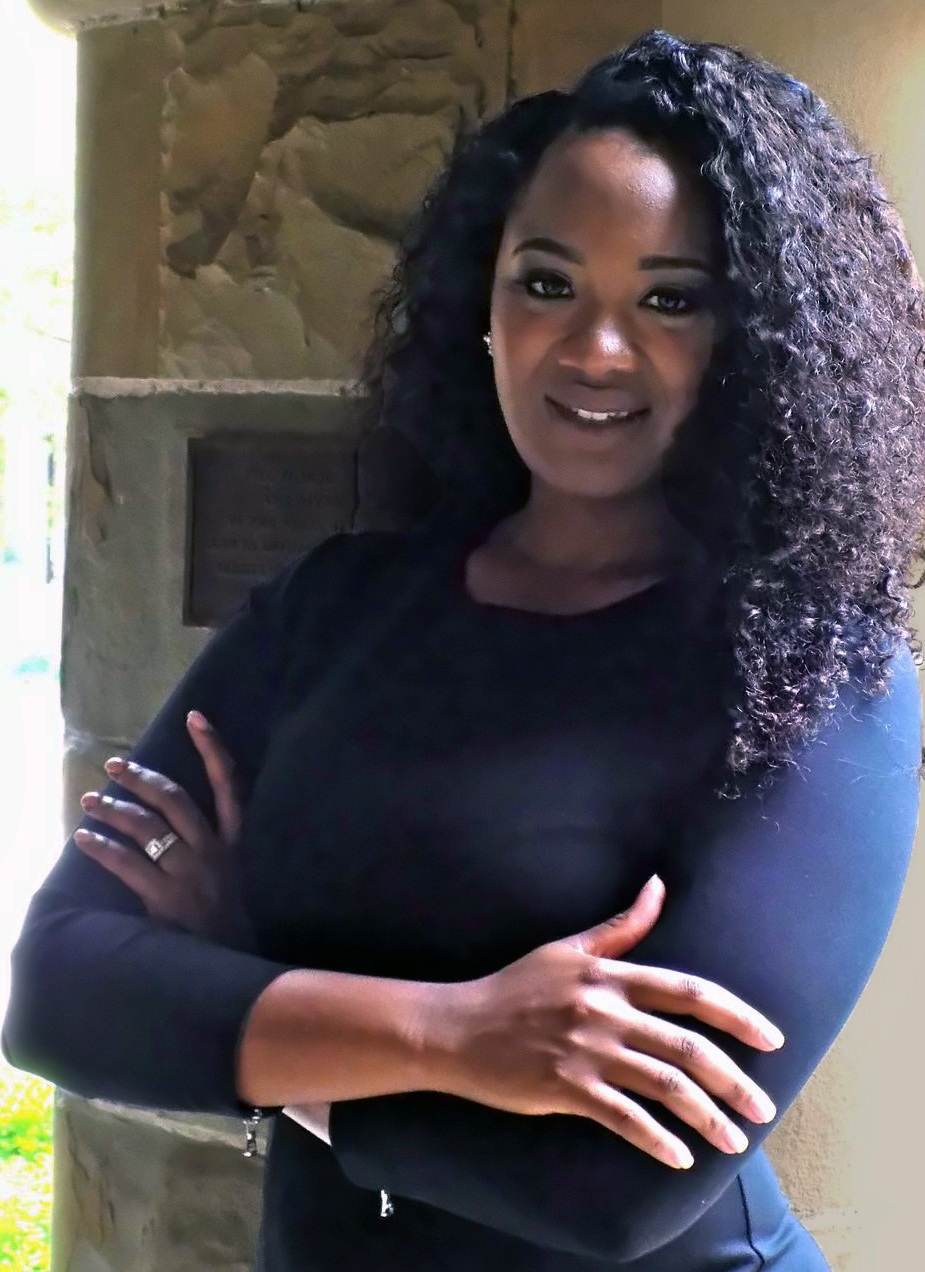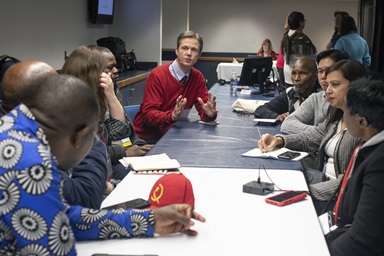Figuring out what God’s call to the ministry means can be a lonely time for a young African-American adult enrolled in divinity school.
Nathalie N. Parker, a 2016 graduate of United Methodist Gammon Theological Seminary, is trying to change that through the National Network of Young Adults.
The network finds a mentor for young African-Americans who are interested in leadership in The United Methodist Church in the areas of ordained or lay ministry, social justice or the academy.

Nathalie N. Parker, a 2016 graduate of United Methodist Gammon Theological Seminary, has taken on the role of national coordinator of the network for African-Americans and ethnic young adults ages 18 to 35. Photo courtesy of Nathalie N. Parker.
“I see the necessity for it, especially African-Americans and young adults in the church,” said Parker, a certified candidate for elder in the North Georgia Conference.
“Going through the process, there were times where it felt lonely, even with an assigned mentor.”
As an intern for Strengthening the Black Church for the 21st Century, Parker has taken on the role of national coordinator of the network for African-Americans and ethnic young adults ages 18 to 35.
“She has been given the responsibility for developing a network of young adults,” said the Rev. Fred Allen, the plan’s national director, of Parker’s two-year position. “She is especially looking at historically black colleges and universities and other students to bring into the network.”
Allen said he wants the network to reach as many young adults as possible as they make their “commitment to walk with Jesus as they build their faith development and spiritual development.”
Strengthening the Black Church, established during the 1996 General Conference, is charged with keeping the 2,300 local black United Methodist churches vital. “We partner with as many churches as possible — urban, suburban, rural, small, large, intermediate,” Allen said.
Parker has put together a conference called LIT, or Leading in Transformation, on Sept. 21 at United Methodist-related Clark Atlanta University in Georgia.
The purpose of the gathering is to meet the spiritual, academic and professional development needs of campus ministries and students at historically black colleges and universities through vibrant worship experiences, relevant workshops and engaging conversations.

The Rev. Fred Allen is the national director of the National Network of Young Adults. Photo courtesy of the Rev. Allen.
The goals of the conference include supporting campus ministers and students with resources that assist on campus and in post-graduate development. Ultimately, the hope is to build a pipeline between young adult leaders and The United Methodist Church. Another goal is to develop an awareness and action plan to address social-justice needs on campuses.
Parker said the daylong conference for young adults would focus on questions like “Where is God calling me to serve?” Even people who do not feel called to traditional ministry may have a vocation in evangelism, social justice or another area.
Through the program, Parker has two people that she now mentors. “It’s good to have someone you can call at any time. It’s about being relational, being resourceful. I wanted to make sure I created the kind of network I wish existed when I was a seminary student.
“I am helping those who feel a call to be ordained ministers to further discern and respond to that call,” she said.
Parker, who lives in Nashville, Tennessee, said she is working with about 16 chaplains on different campuses of historically black schools. Some schools have more than 20 students participating, and there are more than 100 students involved, she said.
When she went back to Gammon over the last year, she said she met a host of students who were excited to hear about the network. “I matched them with mentors who would be helpful for them,” she said.
She also met with a young man she is mentoring, Kylan Pew. Pew asked Parker to mentor him when he was still an undergraduate at United Methodist-related Wiley College. He is now in his second year at Gammon.
“I wanted to be connected to someone who would help me go through the first year,” Pew said. “She has been a wealth of knowledge and information for me. She helps me understand where God is calling me, not just in the world, but in the church. When God gives me different things, she has ideas for what I can do to better understand what he’s asking me to do.”
LEARN MORE
Learn more about the LIT or Leading in Transformation conference.
Pew now has two first-year seminarians that he is mentoring.
“I can’t wait to introduce them to Nathalie at the conference,” he said. “I have followed in her footsteps. I am now president of the student body at the Interdenominational Theological Center. She allowed her ministry to go beyond the pulpit in The United Methodist Church.” The Interdenominational Theological Center is an ecumenical, cooperative seminary that includes Gammon and seminaries of three other denominations.
Jakaela Davis, who is in her first-year at United Methodist Duke Divinity School, met Parker while she was an undergraduate at Tuskegee University. The chaplain there had a prophetic moment following a prayer and said she believed someone in the room was going to go into the ministry, Davis said.
“I knew it was me, but I didn’t want to pursue it because I wanted to make money,” Davis said. “I wanted to be a teacher. What she said was powerful. I knew I was called to the ministry, but I kept ignoring it.”
Davis said Parker helped her through conversations about what it would look like to seek ordination as a black woman. “I watched her minister to young adults. She goes above and beyond what we need. She makes sure that we receive the best resources. She makes sure I am not left out and nor do I feel alone.”
Long Weaver is as freelancer writer, editor and journalism professor in the Nashville, Tennessee, area. Media contact: Vicki Brown at 615-742-5470 or[email protected]. To read more United Methodist news, subscribe to the free Daily or Weekly Digests.
Like what you're reading? Support the ministry of UM News! Your support ensures the latest denominational news, dynamic stories and informative articles will continue to connect our global community. Make a tax-deductible donation at ResourceUMC.org/GiveUMCom.




